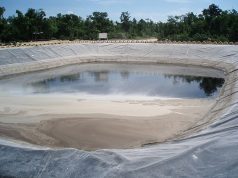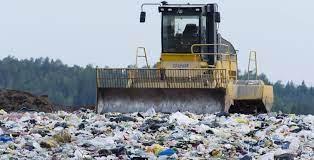South Carolina is a state located in the southeastern United States. It is home to beautiful beaches, lush forests, and diverse wildlife, including at Rock Hill. However, despite its natural beauty, South Carolina is also one of the most polluted states in the country. This is due to a variety of factors, including air and water pollution, as well as hazardous waste and other environmental issues.
Rock Hill Air Pollution
South Carolina is home to several heavily industrialized areas, such as the Upstate and the Midlands. These areas are home to many factories and power plants that release pollutants into the air. In addition, many vehicles add to the air pollution problem in South Carolina. The combination of these sources has resulted in air pollution levels that exceed the standards set by the Environmental Protection Agency (EPA).
Water Pollution
South Carolina’s waterways are also suffering from pollution. Runoff from industrial and agricultural sites, as well as sewage and other sources, has caused water pollution in many of the state’s rivers, streams, and lakes. These pollutants can harm the aquatic life in these areas and can also contaminate drinking water sources.
Hazardous Waste in SC
South Carolina is home to many hazardous waste sites, including those run by the military and other government agencies. These sites are not adequately monitored or maintained, which can lead to the release of hazardous materials into the environment. In addition, many of these sites are located near residential areas, which can put people’s health at risk.
Other Environmental Issues in Rock Hill
South Carolina is also facing other environmental issues, such as deforestation, habitat destruction, and soil erosion. These issues can have a significant impact on the local wildlife and can also contribute to air and water pollution.
South Carolina is home to many of the same environmental issues found in other states, but the state has taken steps to reduce air and water pollution. In addition, the state has enacted several measures to protect its wildlife and natural habitats. However, more needs to be done to reduce the pollution levels in South Carolina and protect the environment.
South Carolina is a beautiful state with many great beaches, state parks, and other natural attractions to offer its visitors. Unfortunately, the state is also home to some serious pollution issues. In recent years, South Carolina has been ranked among the worst states in the country for air pollution, water pollution, and other environmental threats.
According to the waste management experts at Rock Hill Dumpster Rentals Co, the state of South Carolina has taken steps to address these threats. In 2016, South Carolina passed the Clean Air Act, which established stricter standards for air pollution. The law requires industries to reduce their emissions of hazardous air pollutants, as well as to report their emissions levels to the state. The law also requires facilities to install new pollution-control technology, such as scrubbers and catalytic converters.
In addition, South Carolina has taken steps to address water pollution. The state has adopted new water quality standards that set limits on the amount of pollutants that can be released into waterways. The standards are designed to protect aquatic life and drinking water sources. The state also requires wastewater treatment plants to meet strict water quality standards, and regularly monitor their wastewater discharges.
South Carolina has also enacted laws to protect its natural resources. The state has set up a system of protected areas, including state parks and wildlife refuges, that are set aside to conserve land and water resources. The state also has a system of land-use regulations that limit development in certain areas to ensure that natural resources are not destroyed.
The state of South Carolina is continuing to take steps to protect its environment and ensure that its natural resources are preserved. By enacting laws to reduce air and water pollution, and by setting aside protected areas, South Carolina is taking steps to create a safe and healthy environment for its citizens.




